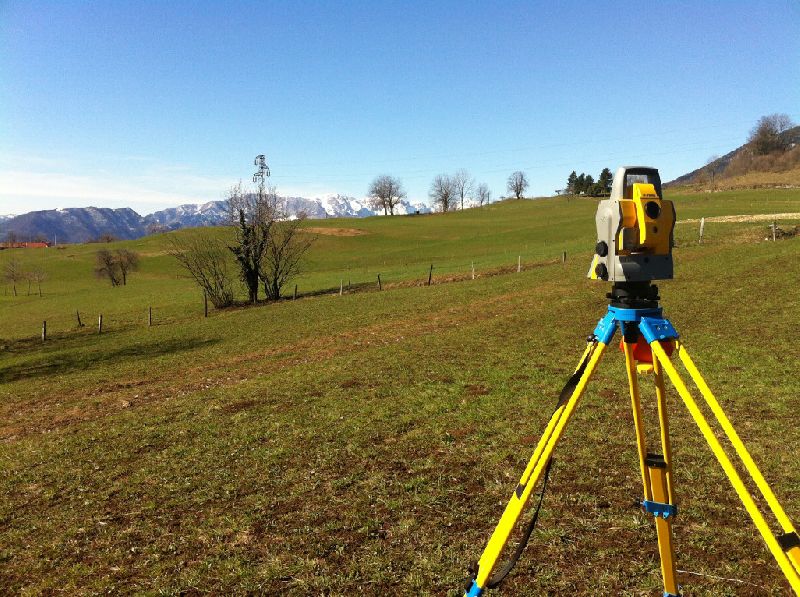Land surveying is both an art and a science that plays a crucial role in the development and management of real estate. Whether it involves establishing property boundaries, setting up for new building, or performing ecological assessments, professional surveying assistance are integral to ensuring accuracy and adherence in various property and infrastructure projects. In an constantly shifting landscape influenced by technological advancements, understanding the importance and complexities of surveying is necessary for property owners, developers, and planners alike.
This thorough guide delves into the diverse world of surveying assistance, showcasing the top justifications to hire a professional surveyor and what to expect during a land survey. From the different types of land surveys to the crucial role they play in preventing disputes and ensuring adherence with zoning laws, this article will equip you with valuable insights into the surveying process. We will also examine the latest technological improvements, including GPS and drone utilization, and how they are transforming the industry. By the end of this guide, you will come to understand the indispensable role that surveying services play in protecting property rights and enabling informed decision-making in property transactions.
Important Justifications to Hire a Surveyor

When starting on any land-related project, employing a skilled surveyor is crucial for precise information. Surveyors acquire the professional capabilities and tools necessary to determine clear boundaries, locate property lines, and assess land characteristics. This degree of accuracy not only secures compliance with state regulations but also helps prevent expensive disputes between property owners. With their experience, surveyors can provide guidance that help you make informed decisions about land use, development, and investment.
One of the key pros of retaining a surveyor is their skill to spot potential issues before they grow. For example, a thorough boundary survey can uncover encroachments or easements that could affect your property rights. This proactive approach can spare you from legal headaches and further expenses down the road. Furthermore, Land Survey Burnham-on-Crouch are often demanded by lenders and insurers, making them a crucial step in securing financing and safeguarding your investment.
In parallel to legal and financial advantages, hiring a surveyor contributes to overall project efficiency. Surveyors collaborate closely with architects, engineers, and construction teams to make certain that plans are feasible and adhere with zoning laws. Land Survey Brentwood is particularly important in challenging projects where exact measurements and planning are critical. With a qualified surveyor on your side, you can confidently navigate the details of land development and focus on bringing your vision to life.
Key Types of Land Surveys Clarified
Property surveys are crucial techniques that determine the spatial and legal limits of a property. One of the primary kinds is the boundary survey, which establishes the specific lines of a property based on deeds. This form of survey is essential for addressing disputes between adjacent property owners and ensuring that property owners are aware of exactly what they possess. It generally involves calculating distances and degrees to produce an precise depiction of the land, marking the boundaries with poles or flags.
A further important form of survey is the topography survey, which examines the natural and artificial features of a piece of land. It captures the elevation changes, contours, and attributes, such as trees, structures, and water features. This data is critical for builders and architects, as it aids in planning construction developments and comprehending how water and other environmental factors affect the land. These surveys provide a comprehensive layout for envisioning potential projects and making certain that construction complies with local regulations.
ALTA and NSPS surveys are detailed assessments that adhere to national standards, primarily used for commercial properties and real estate transactions. These surveys include not only boundary lines but also information about existing easements, improvements, and potential zoning issues. They provide buyers and lenders essential understanding into the real estate, minimizing risks associated with property acquisition. Understanding the differences between different surveys assists property owners to make educated choices about their real estate holdings and minimize legal issues.
The Function of Land Surveying in Property and Development
Land surveying plays a crucial role in real estate and development, serving as the basis for successful property projects. Precise land surveys provide critical data regarding property boundaries, heights, and site features, which help contractors make educated decisions about land use and design. By assessing the topography and geographical characteristics of a site, builders can improve their plans, guaranteeing compliance with regulations and enhancing the project's overall viability.
In development projects, land surveying is key to collaborating with various participants, including architects, technical experts, and contractors. Surveyors provide thorough maps and data that inform layout planning, grading plans, and infrastructure setup. This coordination helps streamline the construction process, minimizing significant mistakes and confirming that the project adheres to all regulatory requirements. Furthermore, these surveys are essential in evaluating potential environmental impacts and confirming adherence to state and federal regulations.
Finally, accurate land surveying can significantly boost property value by avoiding disputes and resolving potential issues before they escalate. By establishing clear boundaries and recognizing easements, surveyors protect property rights and foster effective communication among property owners and builders. This forward-thinking approach reduces the risk of legal challenges and promotes understanding in property development, benefiting all parties involved and contributing to a positive project outcome.
